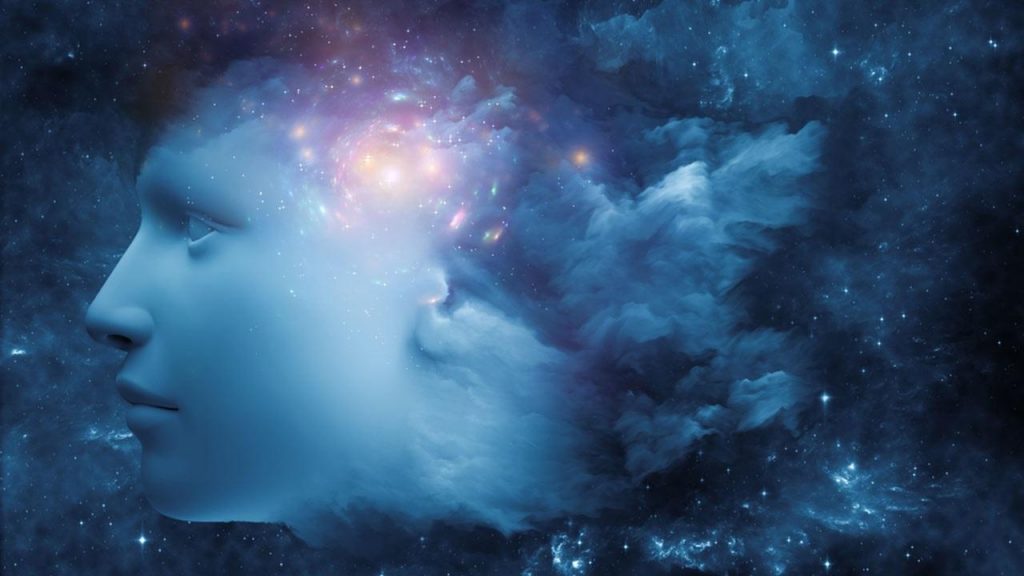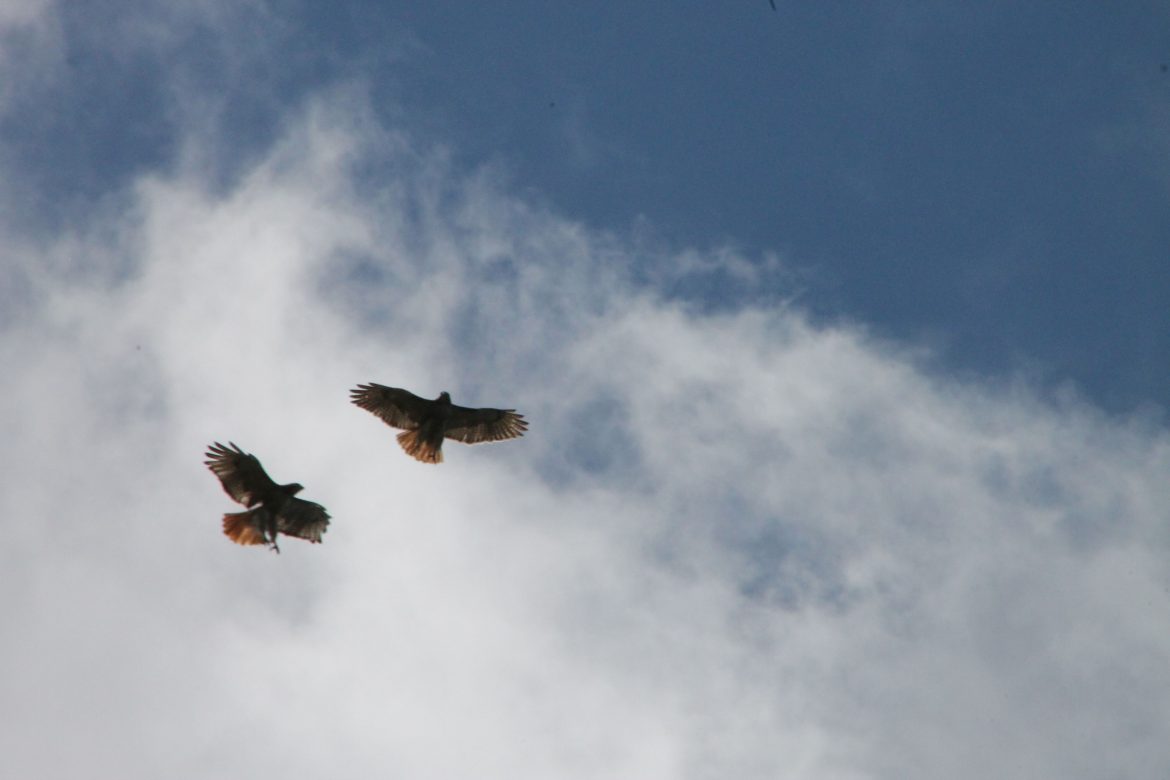It’s a mild, early spring late morning in northern California. The first white and pink blossoms have popped out on the flowering trees in the neighborhood and parkland. And magnificent magnolia trees, as big as small oaks in some yards, are in full bloom.
Neighbors are cutting grass, though there is as yet little grass to cut. The mower stops. The sweet voice of the little girl in back, raised in exclamation and exhortation, emanates through the stillness from within the house.
A pair of hawks circle high above to the south. As they orbit each other against the blue sky, sunlight shimmers for fractions of seconds through the lighter side of their under wings.
The sight is sublime beyond description. Beauty. Mystery. Awe. Reverence.
Watching the hawks perform their aerial aerobatics, complete with acoustical accompaniment of their screeches and cries, one is instantly transported into another dimension, from the flat human world of thought into the true dimension of being.

Is the human brain exapted for communion with the numinous?
Exaptation is a common feature of evolution, wherein a trait that evolves for one purpose is later employed for another function. The classic example is bird’s feathers, which evolved in dinosaurs for warmth, and were later exapted for flight. (Birds are descended from dinosaurs, and are actually little dinosaurs!)
Symbolic thought is itself an exaptation. As Ian Tattersall, Curator at the Department of Anthropology at the American Museum of Natural History in New York has written, “If there is one single thing that distinguishes humans from all other life-forms, living or extinct, it is the capacity for symbolic thought: the ability to generate complex mental symbols and to manipulate them into new combinations.
“This is the very foundation of imagination and creativity: of the unique ability of humans to create a world in the mind and to re-create it in the real world outside themselves.”
The capabilities of thought have always been a two-edged sword. But in our time the human mind has cut the Earth and humanity to pieces.
So if the human brain is exapted for insight and communion with the cosmic mind, why is it so hard for the mind to be still? Why are darkness, suffering, conflict and the fragmentation of the Earth increasing rather than decreasing?
There are many reasons for the latter, but the very conditions that man has made, the world that humans have built, make it very difficult to free oneself of the tyranny of conditioning, the pressures of the family, and the scale of the problems in society.
With regard to the stillness and “the peace that passes all understanding,” the mind has to be completely quiet and the self – the ‘I’ – absent even for moments of liberation and immanence.
Symbolic thought is a very powerful adaptation, the most powerful adaptation ever evolved on Earth, and its inordinate power makes it very difficult to see beyond, much less transcend.
In two sentences Tattersall refutes a learned academic philosopher, who, with false humility in a recent “Stone” piece in the New York Times, pronounces: “There is no doubt that human beings are distinct from other animals, though not necessarily more distinct than other animals are from one another.”
That’s not so. We are different and distinct from other animals. Not however, as the philosopher’s straw man avers, in a way that “makes us humans so much better than all the other animals… the originating idea of Western thought.”

Why persist with a false choice? And why continue to make “Western thought” the villain? We are neither “immortal beings created in the image of God,” nor “squirrels, just a physical organisms, a bundle of instincts.”
The problem lies much deeper than most philosophers are willing or able to go. It lies in the evolution of the human capability for “the separation of people from members of other species,” which is to say, the animals with which we share this planet.
“The unique ability of humans to create a world in the mind and to re-create it in the real world outside themselves,” as Tattersall put it, is based on thought’s ability to consciously separate animals and plants from the environment and turn them into objects for manipulation and recombination.
Not having sufficient insight into ‘higher thought,’ and continuing to allow it to be the existential foundation within ourselves even as we criticize Western philosophy’s pillars of reason and rationality, we have dis-integrated the Earth, and ourselves. We are creatures of thought, conditioned by experience and saturated with symbols and psychological memories.
Does evolution, through its random means, ineluctably evolve creatures with brains such as ours wherever the conditions for life are right and stable over vast periods?
Is there a latent potential, waiting to be consciously exapted within us, to consciously share in the consciousness of the cosmos? Is the universe, and the Intelligence that inseparably imbues it, conscious?
I feel yes.
Martin LeFevre

